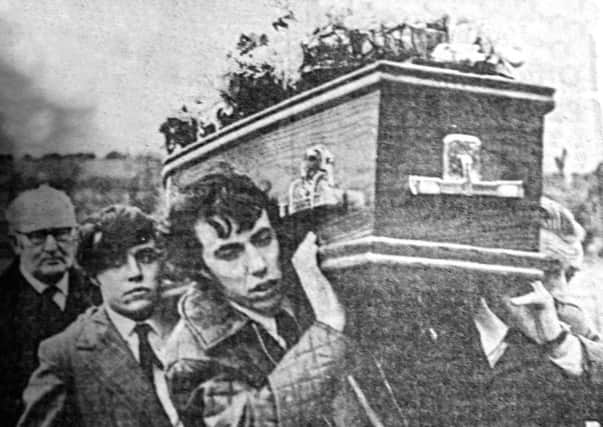Lawyers will discuss naming dead suspects in Kingsmills inquest


Ten Protestant workmen were taken out of their minibus and gunned down by the side of the road near Kingsmills in south Armagh in 1976. The PSNI has told the inquest the IRA was responsible.
Sean Doran QC for the coroner told the inquest there were three main outstanding issues;- suspects with On The Run (OTR) letters, the naming of deceased suspects and the current legal status of suspects.
Advertisement
Hide AdAdvertisement
Hide AdMr Doran noted that there had been correspondence from the Police Ombudsman’s office, which confirmed they are investigating a complaint which takes in the legal status of suspects.
The ombudsman investigation is likely to last another six to eight weeks, he said, urging that the inquest ensure it takes the findings into account.
Alan Kane QC for some of the families, said that there had been a sharp focus in recent days on the outcome of a High Court hearing about the inquest into the IRA Birmingham bomb attacks in 1974, which claimed 21 lives.
In that case the High Court quashed the coroner’s decision not to investigate the individuals behind the atrocity.
Advertisement
Hide AdAdvertisement
Hide AdMr Kane said it was now clear that since the High Court decision is being appealed, the issue of naming of suspects in inquests is going to be decided by the court of appeal in England and may end up in the Supreme Court.
The families he represents, he said, would hold that “suspects ought not have been hiding behind ciphers” in the Kingsmills inquest, as has been the case so far.
But Mr Sherrard said that it seemed to him that the High Court ruling on the Birmingham case was not focussing on individuals and was “not on all fours” with Northern Ireland.
Mr Doran said that it appeared coverage of the outcome of the Birmingham inquest High Court hearing had wrongly conflated two issues - examining evidence against individuals and, separately, naming them.
Advertisement
Hide AdAdvertisement
Hide AdPeter Coll QC for the PSNI agreed and further suggested that the outcome of the appeal in England could even find that examining evidence against individuals without naming them was going too far.
Mr Doran urged that in the meantime that the inquest progress independently by looking at the issue of naming deceased suspects.
Mr Sherrard added that naming deceased suspects had already arisen in Northern Ireland inquests.
Culpability was always in his thinking, he said of Kingsmills, he said. “If one could identify specific individuals than they should be identified,” he said, without suggesting they should be actually be named.
Advertisement
Hide AdAdvertisement
Hide AdAll legal representatives agreed to meet him to discuss naming deceased suspects on 22 March.
Peter Doran QC said two suspects had OTR letters and asked if a witness should give evidence on the scheme to the inquest.
Eugene McKenna, acting for one of the families, agreed, describing the scheme as “impenetrable”. But Peter Coll QC for the PSNI said the Hallet inquiry had provided transparency and that there was a risk of prejudicing criminal investigations.